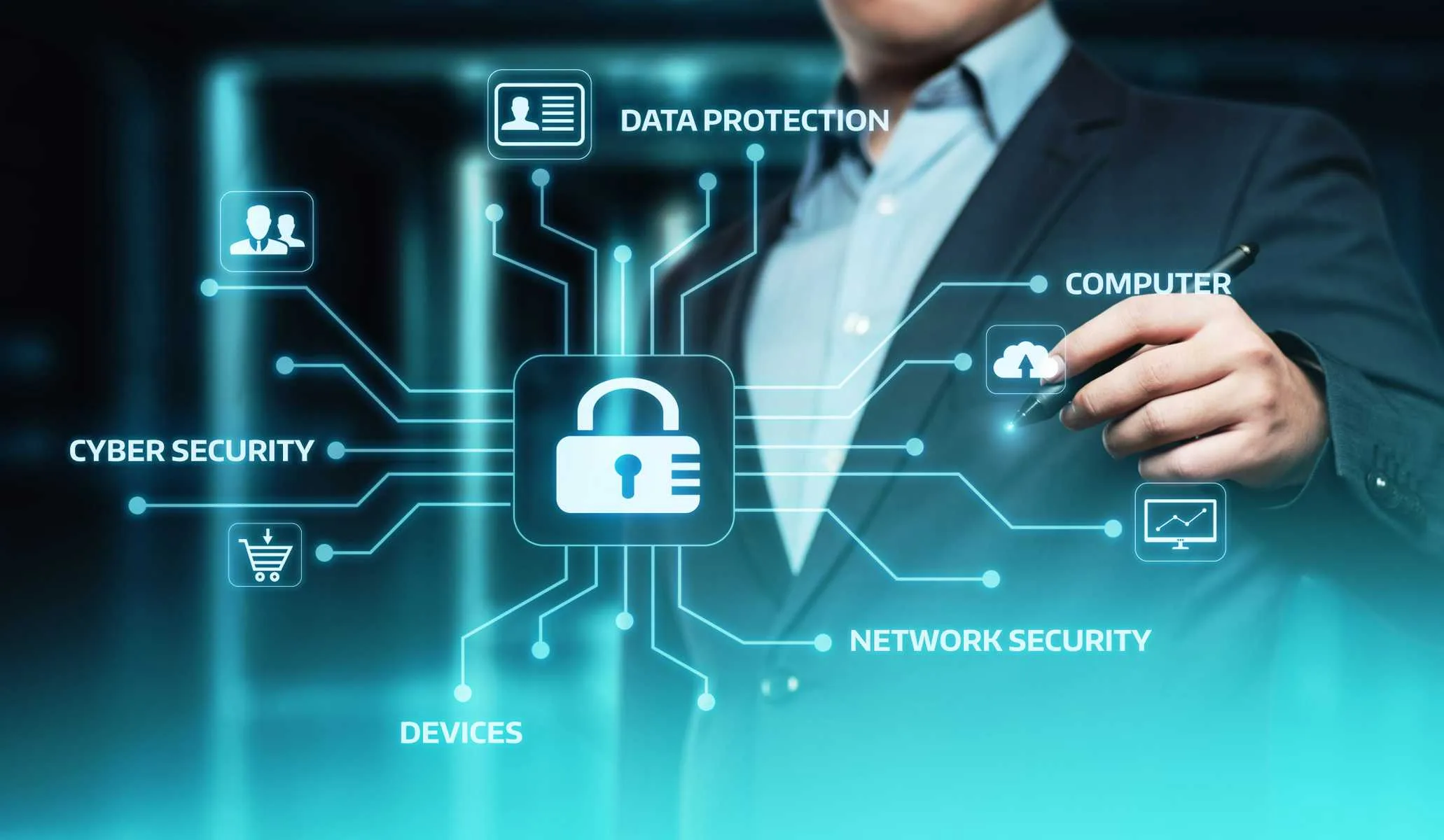In our increasingly digital world, organizations and individuals store vast amounts of sensitive information online, including personal data, financial records, intellectual property, and trade secrets. Cybersecurity measures are essential for safeguarding this information from theft, unauthorized access, and exploitation.
Why Cybersecurity Matters?
Cybersecurity matters for several important reasons:
- Privacy preservation: Cybersecurity helps maintain privacy by preventing unauthorized surveillance, data breaches, and identity theft. It ensures that personal and confidential information remains confidential and is only accessible to authorized individuals or entities.
- Prevention of financial loss: Cyberattacks can lead to significant financial losses for individuals and businesses. Cybercriminals can steal funds, conduct fraudulent activities, or cause disruption, resulting in financial repercussions. Implementing robust cybersecurity measures helps minimize the risk of financial loss due to cyber incidents.
- Maintenance of business continuity: Organizations rely heavily on their digital systems and networks to conduct daily operations. Cyberattacks protects these critical assets from cyber threats that could disrupt services, cause downtime, or lead to data loss. Cybersecurity helps prevent financial losses, reputational damage, and potential legal consequences by ensuring business continuity.
- Protection against reputational damage: A successful cyberattack can severely affect an organization’s reputation and trustworthiness. Customers, partners, and stakeholders expect organizations to protect their data and privacy. Failing to implement adequate cybersecurity measures can result in losing trust, customer base, and business opportunities.
- National security: Cybersecurity is crucial not only for individual businesses but also for the overall safety of nations. Cyber threats can target critical infrastructure, government systems, defense networks, and essential services. A robust cybersecurity posture is necessary to protect national security interests, intellectual property, and sensitive government information.
- Mitigation of legal and regulatory risks: Many countries have established laws and regulations related to Cyberattacks, data protection, and privacy. Non-compliance with these regulations can lead to legal consequences, penalties, and reputational damage. By prioritizing cybersecurity, organizations can ensure compliance with applicable laws and regulations, minimizing legal risks.
- Protection of individuals and society: Cybersecurity is vital for individuals’ safety, digital identities, and their interactions in cyberspace. It helps create a safer online environment, preventing cyberbullying, harassment, scams, and other malicious activities that can harm individuals and society.
- Defending Against Evolving Cyber Threats: A Dynamic Challenge: The landscape of cyber threats is ever-evolving, with adversaries constantly devising new tactics. Cybersecurity professionals are the guardians on the front lines, adapting to emerging threats, identifying vulnerabilities, and fortifying digital landscapes against unforeseen dangers.
- Navigating the Internet of Things (IoT): The proliferation of IoT devices brings unprecedented convenience but also introduces a web of vulnerabilities. Cybersecurity acts as a guiding force, ensuring that smart homes, connected cars, and industrial IoT systems operate securely, minimizing the risk of exploitation by malicious actors.
- Mitigating the Human Factor: Humans, as the users of technology, can be both the strongest defense and the weakest link. Cybersecurity education and awareness programs play a pivotal role in empowering individuals to recognize threats, adopt secure practices, and contribute to the collective resilience against cyber threats.
Learn how to recognize phishing emails
The Cybersecurity Landscape

Cybersecurity is important because it protects all categories of data from theft and damage. This includes sensitive data, personally identifiable information (PII), protected health information (PHI), personal information, intellectual property, data, and governmental and industry information systems. Without a cybersecurity program, your organization cannot defend itself against data breach campaigns, which makes it an irresistible target for cybercriminals.
Both inherent risk and residual risk are increasing, driven by global connectivity and usage of cloud services, like Amazon Web Services, to store sensitive data and personal information. Widespread poor configuration of cloud services paired with increasingly sophisticated cyber criminals means the risk that your organization suffers from a successful cyber attack or data breach is on the rise.
Business leaders can no longer solely rely on out-of-the-box cyberattacks solutions like antivirus software and firewalls, cybercriminals are getting smarter, and their tactics are becoming more resilient to conventional cyber defenses. It’s important to cover all the fields of cybersecurity to stay well-protected.
Cyber threats can come from any level of your organization. Workplaces must include cybersecurity awareness training to educate staff about common cyber threats like social engineering scams, phishing, ransomware attacks (think Emotet), and other malware designed to steal intellectual property or personal data.
The proliferation of data breaches means that cybersecurity is not just relevant to heavily regulated industries, like healthcare. Even small businesses are at risk of suffering irrecoverable reputational damage following a data breach.
The cybersecurity landscape is dynamic and constantly evolving due to rapid technological advancements and the increasing sophistication of cyber threats. Here are some critical aspects of the cybersecurity landscape:
- Growing threat landscape: Cyber threats have become more prevalent, diverse, and sophisticated. Cybercriminals continuously develop new attack techniques and strategies to exploit computer systems, networks, and applications vulnerabilities. Threat actors range from individual hackers to organized cybercrime syndicates and state-sponsored groups.
- Advanced persistent threats (APTs): APTs are long-term, stealthy cyberattacks typically orchestrated by well-funded and highly skilled adversaries. These attacks often target specific organizations or individuals to gain unauthorized access, exfiltrate data, or conduct espionage. APTs can persist undetected for extended periods, making them particularly challenging to mitigate.
- Ransomware attacks: Ransomware has emerged as a significant threat in recent years. It involves encrypting a victim’s data and demanding a ransom for the decryption key. Ransomware attacks have targeted various sectors, including healthcare, finance, government, and critical infrastructure. Cybercriminals have also adopted double-extortion tactics, threatening to leak stolen data if the ransom is unpaid.
- Cloud security concerns: The widespread adoption of cloud computing has increased reliance on cloud service providers for data storage, processing, and infrastructure. While cloud services offer many benefits, they also introduce new security considerations. Organizations must ensure the secure configuration of cloud
- Insider threats: Insider threats, intentional or unintentional, pose significant risks to organizations. Malicious insiders with authorized access can abuse their privileges to steal data, sabotage systems, or carry out other malicious activities. Unintentional insider threats can arise from employee negligence, such as falling victim to phishing scams or mishandling sensitive information.
In conclusion, cybersecurity matters not just as a technical necessity but as a linchpin of our digital society. It is the guardian of trust, the protector of privacy, and the defender against a myriad of digital threats. As we continue to navigate the digital landscape, let us recognize the pivotal role cybersecurity plays in preserving the integrity and security of our interconnected world. Stay secure, stay informed, and let’s build a digital future we can trust.





